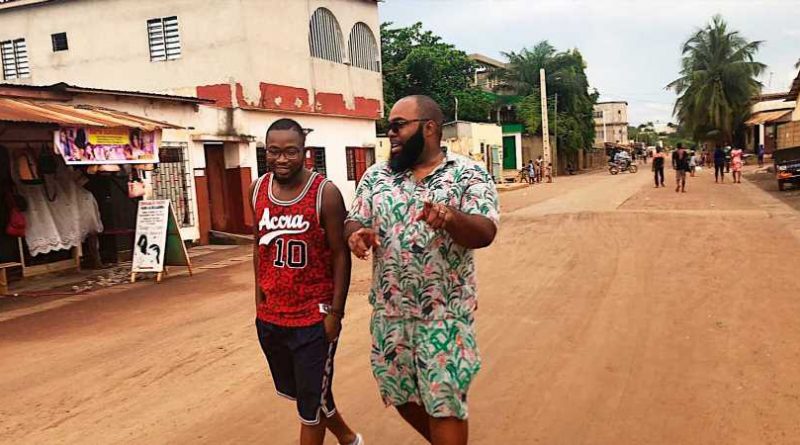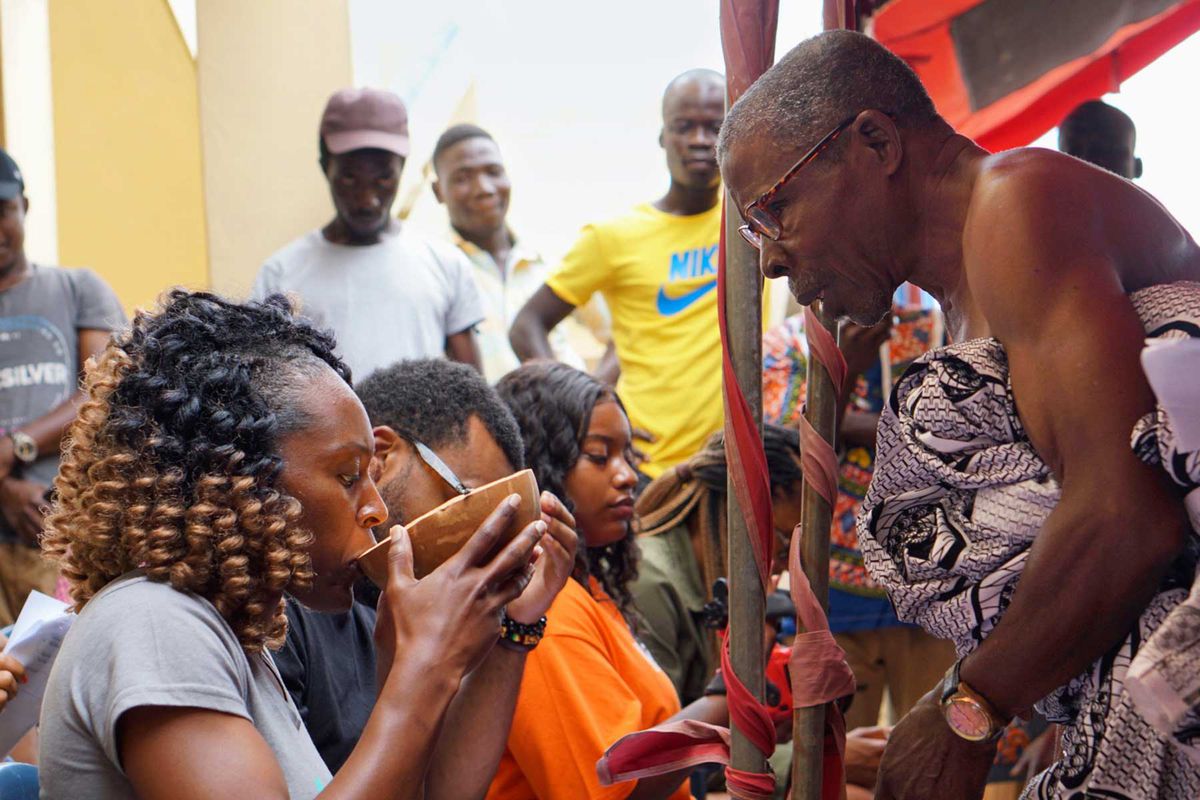For Black Americans, a Heritage Trip to West Africa Can Be Life-changing
West African must-sees like Ghana's Elmina Castle and Senegal's Maison des Esclaves, relics of the transatlantic slave trade, are some of the most important historical sites on the continent. They have an even deeper meaning for travelers like Rondel Holder. A Black New Yorker with family from Grenada and Jamaica, he's one of a growing number of people of the African diaspora returning to West Africa to explore his roots.
"I still get chills thinking about the dungeons and cellars of Elmina Castle," Holder says, recalling his visit in 2019. "For a lot of Black people, there's a longing to connect and a longing to learn about where we're from."
A number of developments are driving a surge of interest in heritage trips to West Africa. Advancements in DNA testing — led by Africa-focused companies such as AfroRoots DNA and African Ancestry — are making it easier for Black Americans to research their genetic backgrounds. Airlines, including Delta, have expanded service to West Africa. Tourism campaigns such as Ghana's 2019 Year of Return, timed to coincide with the 400 years since the first enslaved Africans arrived in Jamestown, Virginia, also attracted the diaspora. And a growing number of tour operators are stepping in to handle the logistics of these trips.
"We've never really had the chance to grow from the past," says Atlanta-based Eric Martin, cofounder of Black & Abroad, which operates group tours to Ghana and Senegal. "By making a pilgrimage to these West African countries, seeing the sights, hearing the personal accounts of our African ancestors directly from their surviving descendants, we have a cathartic connection."
Black travelers say the experience can be life-changing.
"I feel more in touch with myself and my culture than ever before," says Brian Oliver, a Baltimore-based nonprofit director who visited the five African countries that matched his DNA: Benin, Côte d'Ivoire, Ghana, Nigeria, and Togo. Nicole Brewer, a teacher and blogger living in Oman whose DNA results showed a link to Ghana, added the country to her short list of places for retirement, after visiting during the Year of Return. Others, like Kristin Tellis Quaye of St. Petersburg, Florida, have turned heritage travel into a new career. A practicing lawyer, she also now runs Certified Africa, a firm that organizes trips to West Africa.
While these soul-stirring journeys are a powerful means for Black Americans to trace their lineage, they also require careful planning.
"The reality is, Africa has its own complexities and perspectives that don't always match the idealized view of the continent those in the diaspora have," says Kwesi Ewoodzie, a Ghanaian-American sociologist and founding director of Culture Beyond Borders, an Atlanta tour operator. The right guide can help navigate language barriers and facilitate meaningful cultural interactions. Facebook groups such as Black Travel Movement and Travel Africa Movement are excellent resources, filled with advice from locals. And media outlets like Essence and Travel Noire offer sound advice, often with Black Americans specifically in mind.
Another challenge: DNA testing can trace only Black Americans' racial backgrounds and geographic origins, not the names or lineages of their families. Despite all of this, Holder says, his visit to Ghana was "deeply spiritual."
"You're standing where tens of thousands of Black people were enslaved, learning about everything they went through before they were shoved onto boats to cross the Atlantic," he recalls. "So, to be back in Africa willingly and happily, in the place where all of that happened, it's like my ancestors' wildest dreams."
A version of this article first appeared in the February 2021 issue of Travel + Leisure under the headline Going to West Africa? It's a Trip Like No Other.
Source: Read Full Article




